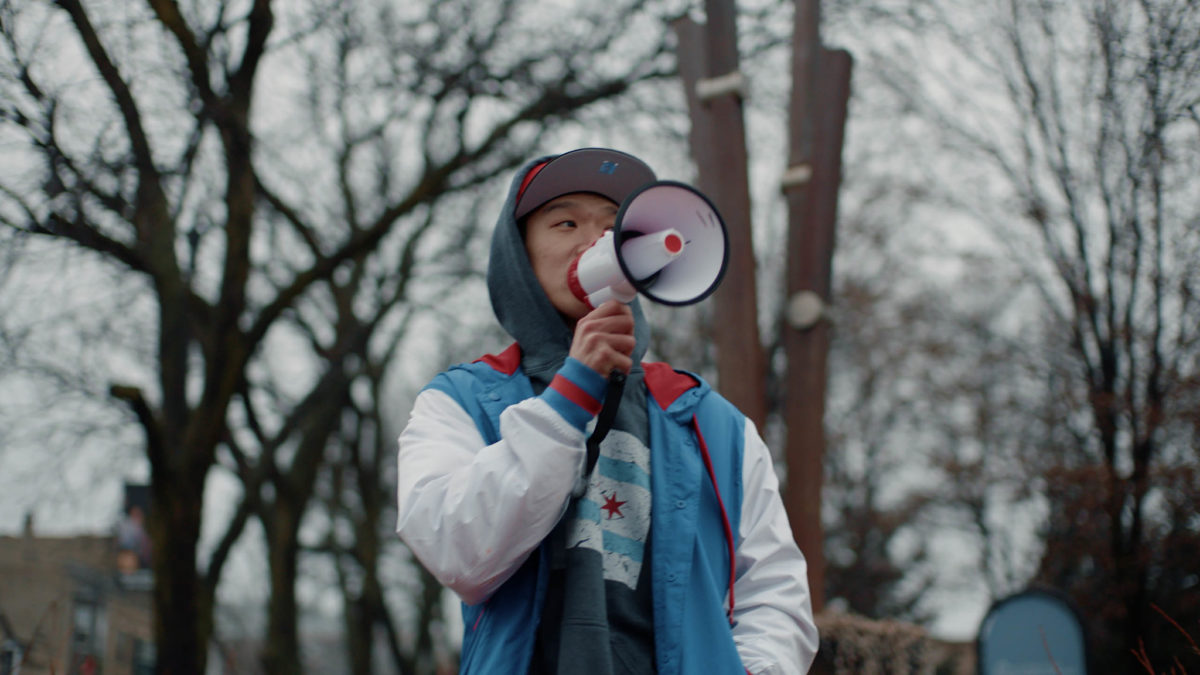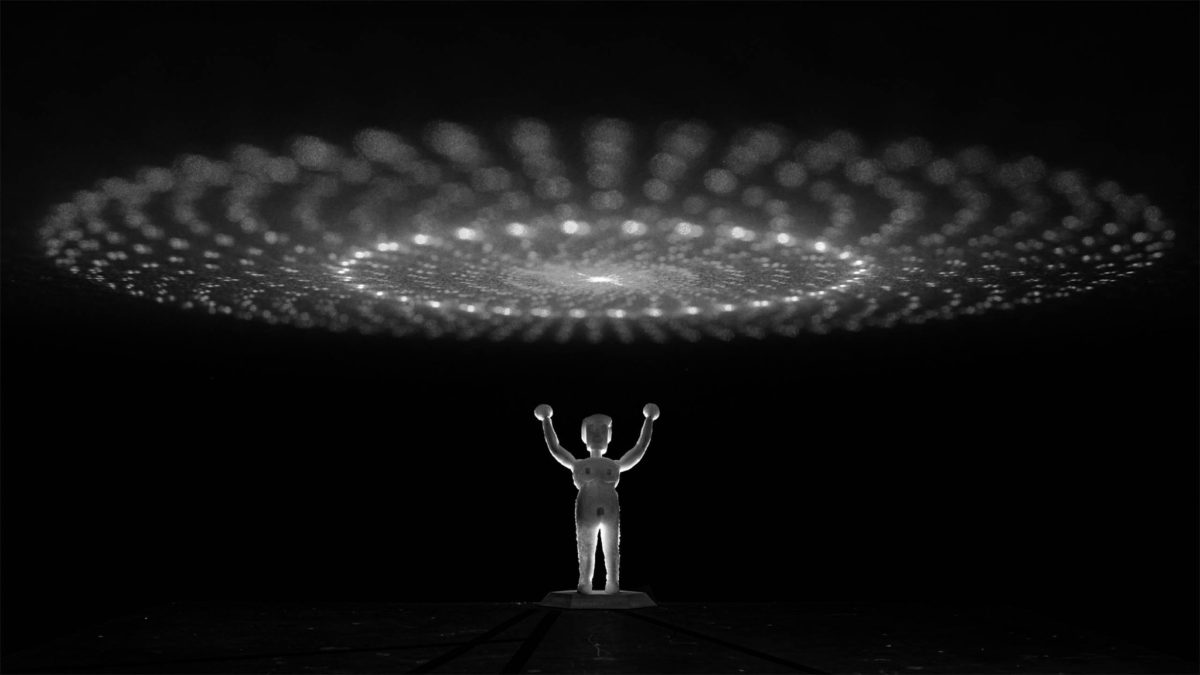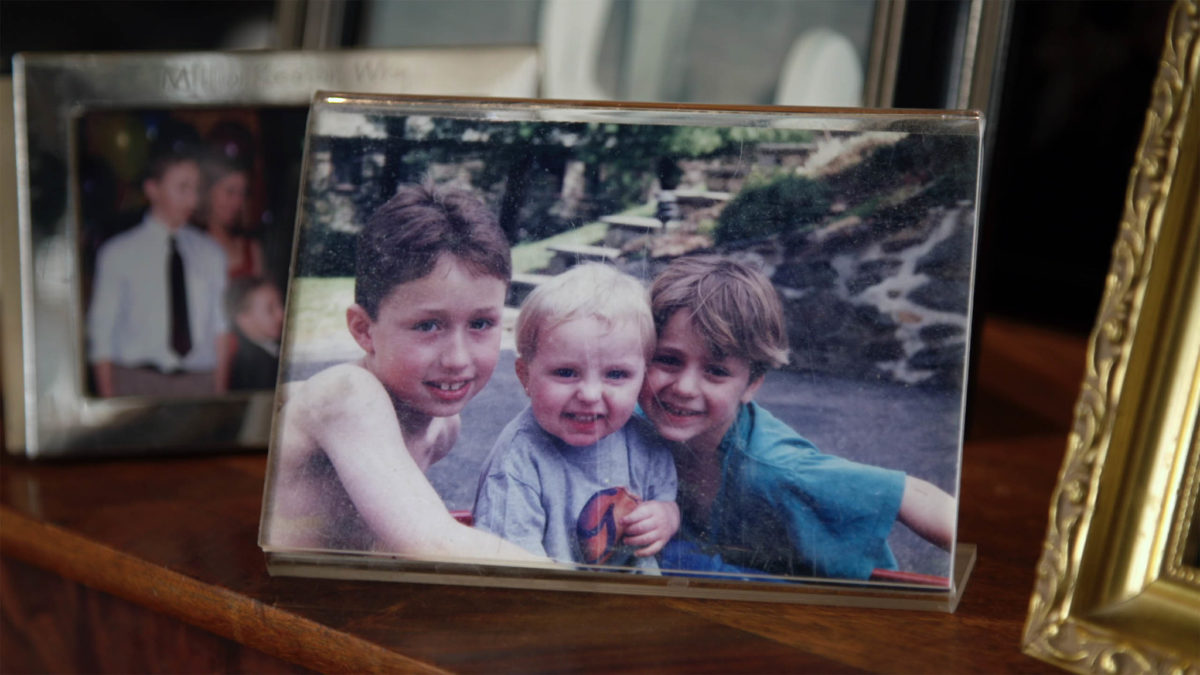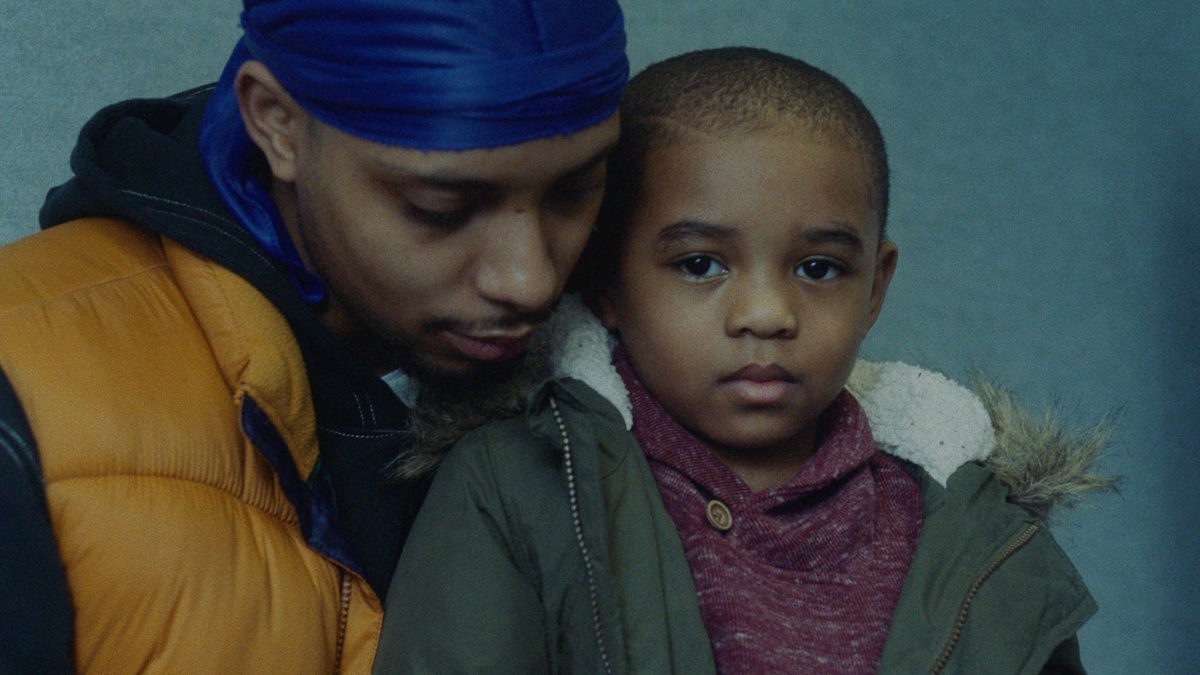After providing coverage on nearly every feature film premiering at Sundance Film Festival this year, today we turn the spotlight on our favorite shorts. With 50 short films accepted from nearly 10,000 submissions, check out our thoughts on a handful of the premiere below, courtesy of Dan Mecca and Shayna Warner.
BJ’s Mobile Gift Shop (Jason Park)

Heartwarming, clever, and well-paced, filmmaker Jason Park builds a fully-realized, hyper-real Chicago in which BJ (Johnnyboy Tellem) is a hustler on the streets with a traveling bag of problem-solving gifts for his many clients around town. He’s strategic in his timing, catching any and every manner of city-dweller at the moment they need a quick snack, a phone charger, a new shirt-and-tie, or something of the sort. Bookended by a precarious skyscraper interview for a “real’ job, Park captures the spirit of his lead nicely. The entire narrative is lifted by a pitch-perfect final scene that gets to the heart of the matter. – Dan M.
A Concerto is a Conversation (Ben Proudfoot and Kris Bowers)
A short film from The New York Times (available in full above), this is the story of a Black family in America through the eyes of Kris Bowers himself, wrapped in the score of a concerto he’s written entitled “For A Younger Self.” The central subject is Bowers’ grandfather, Horace Bowers Sr., who recalls his upbringing in Florida, encountering prejudice there, and his eventual exodus to Los Angeles (after hitchhiking across the country!). Once west, he finagles his way into a job at a dry cleaners, eventually buying the business. In speaking to the difficulty he found in getting a loan for the business, Horace says succinctly regarding racism in America: “In the South they tell you. In Los Angeles, they show you.” Proudfoot and Bowers do admirable––and admirably stylish––work here, allowing the music to drive the images. But, above all else, it’s their subject that will stick with you long after this short ends. – Dan M.
Don’t Go Tellin’ Your Momma (Topaz Jones)
First-time director Topaz Jones creates a miniature anthology in his beautifully shot update of the Black ABCs, a flashcard system originally created by Black Chicago educators in 1970 to penetrate a white educational landscape. Fluidly shifting in and out of every genre imaginable, Jones both directs and performs in fragments of original music videos, home video footage, sci-fi skits, and ultra short parodies. Throughout the short, concise and revealing interviews narrate the expansiveness of Jones’ world, providing nuggets of inspiration across generations and genders. The humor and heart accompanying every impressive technical component prove Jones is an up and coming artist to watch. – Shayna W.
Ghost Dogs (Joe Cappa)
Without question the strangest and most disturbing short this writer had the pleasure of watching at this year’s festival, Ghost Dogs is an animated horror film told through the eyes of a newly-rescued dog. Unbeknownst to the pup, he has been thrown into an apartment full of nightmares, including long-dead ghost pets and the havoc they’ve decided to wreak. Often do pieces like this overstay their welcome, even in short form. Filmmaker Joe Cappa ensures that that not be the case here. His creative escalation results in an experience you won’t quickly shake from your head. Equal parts terrifying and hysterical. – Dan M.
KKUM (Kang-min Kim)

There’s a memorable animation aesthetic here, built around narration concerning director Kang-min Kim and the foreboding dreams of his mother. A series of moments from his life––beautifully rendered as desaturated, foam-built recollections––are informed and affected by calls of warning from the matriarch. The piece is bookended by a buzzing, vibrating cell phone that will feel familiar to anyone who has both dreaded and been relieved to receive an unexpected call from a parent. – Dan M.
The Rifleman (Sierra Pettengill)
Here is a short film that would deserve feature-length treatment, digging into the infamous life of Harlon Carter, considered by many to be the “Father of the Modern N.R.A.” Through the rise (and precipitous fall) of Carter does Pettengill trace the extremist rise of the National Rifle Association. An organization once built for gun culture hobbyists, the N.R.A. pivoted hard in the 1970s, thanks in large part to Carter. Gun rights became the central issue, and any sense of non-partisanship was literally kicked out of any and all leadership roles. A few years later, Carter’s deeply troubled past came back to haunt him, resulting in a penance far too little and far too late. This is an intriguing entry point into the story, but feels like the tippy, tippy top of the iceberg. – Dan M.
Snowy (Alex Wolf Lewis and Kaitlyn Schwalje)

Perhaps a perfect distillation of a subject fitted for a short film treatment, this little ditty tells the perhaps bittersweet tale of Snowy, a pet turtle who has lived in director Alex’s uncle’s basement for over a decade. While the rest of Uncle Larry’s family has gradually come to mostly ignore Snowy, Larry’s devotion remains unwavering. Alex Wolf Lewis and Kaitlyn Schwalje dive softly into the history of this turtle, interviewing Larry and the family, Snowy’s vet, and a few other animal experts to get a sense of who Snowy is and how, exactly, he might feel about his basement dwelling. The answers may be fleeting, but the energy and emotion is very much real. – Dan M.
Tears Teacher (Noémie Nakai)
“Have you cried recently?” So opens Noémie Nakai’s sweet documentary profile of the self-described “tears teacher” Yoshida. Sporting a pair of funky, thick-rimmed lensless frames and an uncompromising vision, Yoshida has spent the last five years instructing Japanese adults on the finer points of connecting with, and releasing their vulnerability. Yoshida is motivated by his personal experience and observations of a society which discourages its population from showing emotion, and his stories of built up stress resonate in an age of hardship upon hardship. Though the premise sounds like it could be an SNL skit, bolstered by delightful lines like, “I really want to make men in their forties cry,” Nakai’s lens captures a genuine desire to make the world a gentler, fuller place. – Shayna W.
This Is the Way We Rise (Ciara Lacy)
This poetic documentary is an exploration of resistance, heritage, reclamation, and creative process, all wrapped up in a short but effective package. Native Hawaiian director Ciara Lacy chronicles a chapter in Jamaica Heolimeleikalani Osorio’s life, as the slam poet and activist finds herself revivified by the ongoing protection of sacred site Mauna Kea. While the documentary is mostly about process––in stages from stagnancy through donation of work to the land––what stands out most is the power of delivery. In a moment when Heolimeleikalani Osori is forming a human blockade, an older protestor pleads with police to leave the activists be. The fortitude and emotion in her voice thematically syncing up with the power of the poet’s renewed strength is enough to make this documentary worth watching. – Shayna W.
The Touch of the Master’s Hand (Gregory Barnes)
Here is a short, situational comedy punctuated by a single well-placed joke. Set at a Mormon mission, a slew of well-dressed white men speak to each other in half-fluent Spanish. Elder Hyde (Samuel Sylvester, perfectly cast) seems a bit unsure of it all. When he’s called to meet with President Packard (Samuel Whitehill), his doubts bubble to the surface. Rarely has a film so deftly captured the strange, intense guilt that’s associated with masturbation in places of high faith. Barnes holds back his one punchline until the exact right moment. – Dan M.
Wiggle Room (Julia Baylis and Sam Guest)

Everyone dreams of throttling their stingy insurance agent. In Julia Baylis and Sam Guest’s pitch black comedy, dreams come true. Fueled by a tenacious performance from lead actor Deanna Gibson, Wiggle Room depicts insurance agencies as they truly are: dreary hellscapes of undue suffering and perpetual pyramid schemes designed to kick people while they’re down. Watching Daisy (Gibson) square off with the slimiest of corporate pencil pushers and exact revenge is a treat, especially when the industry itself looms as a non-fiction, still unconquered villain. – Shayna W.
Yoruga (Federico Torrado Tobón)
Perhaps the strongest short film at Sundance, Federico Torrado Tobón’s Yoruga tells the story of an old man desperate for connection. In his loneliness, he schedules a visit with one of the last living animals on Earth. Understated, absurd, and tragic, these are six unforgettable minutes. Superb use of extreme angles and exquisite framing (not to mention a perfectly spare meeting room as the central location) drive a film with barely any dialogue. Filmmakers: this is the ideal example of how to make a successful short. – Dan M.
